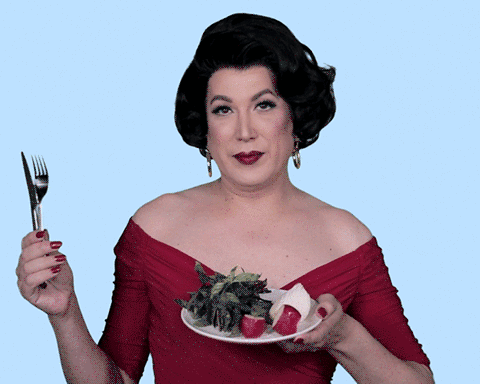News
Mimi Launder
Nov 24, 2017

Picture:
PeopleImages / iStock
'Calories in, calories out' is a highly touted rule when it comes to weight loss.
And it certainly is helpful general mantra. But, nuanced and complicated as it is, our biology also comes with some more surprising quirks that can help you lose weight.
We have compiled a list of these strange tips, which are all reportedly backed by science.
1. Cook with coconut oil.
The stuff is really quite amazing. It is high in special fats called medium-chain triglycerides (MCTs), which can increase the number of calories you burn compared to other fats.
One study found that 15-30 grams of MCTs per day burnt around 120 calories over 24 hours.
Before you go overboard and get too oily, know that scientists advise you replace your current fats with coconut oil, rather than supplement them.
2. Look at pictures of food.
Yep. staring at #foodporn on Instagram can be good for your health.
While a couple of pictures can enhance your appetite, a study found that - contrary to what you might assume - looking at endless pictures of food can make them less enjoyable to eat.
3. Play Tetris (or Candy Crush)
Just three minutes of playing Tetris - though Candy Crush will probably work too - can reduce cravings for food.
A study found that games like these are distracting enough to compete with you food cravings, as cravings often only last for a few minutes.
4. Dieting can be unhelpful.
It might sound like conflicting advice, but dieting can actually make you gain weight.
People who go on diets regularly often gain weight after finishing the regime, as yo-yo dieting can reduce the diversity of your gut microbes, which has in some studies been connected with obesity.
Instead, change your approach to health in a doable way that you can stick to for life - such as learning to control portions and enjoy exercise.
5. Embrace your emotions.
A study found that paying attention to your emotions is a more powerful weight-loss strategy than greater nutritional knowledge.
Participants with emotional training were more likely to choose a healthier snack than those who had had nutritional training.
After all, food often has an emotional power over us - for example, we might eat mindlessly in front of the TV after a stressful day. But being aware of your emotions helps you tackle unhealthy food choices.
6. Use smaller plates.
For all our remarkable scientific advances and artistic imagination, human beings can be as surprisingly simple bunch.
If you have a smaller plate, you'll put less food on it and eat fewer calories, according to a study.
Time to use your human flaws to your advantage.
7. Chew slowly.
It can take a while for your brain to register that you're full.
Thanks to this delay, eating more slowly can help you eat fewer calories, studies show.
HT Healthline Spring
Top 100
The Conversation (0)
















